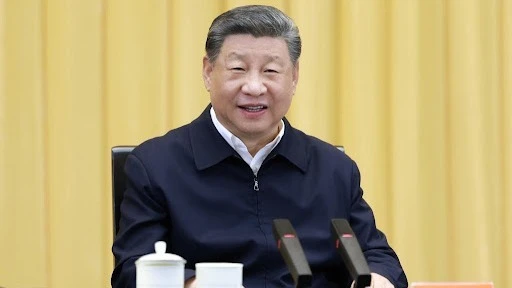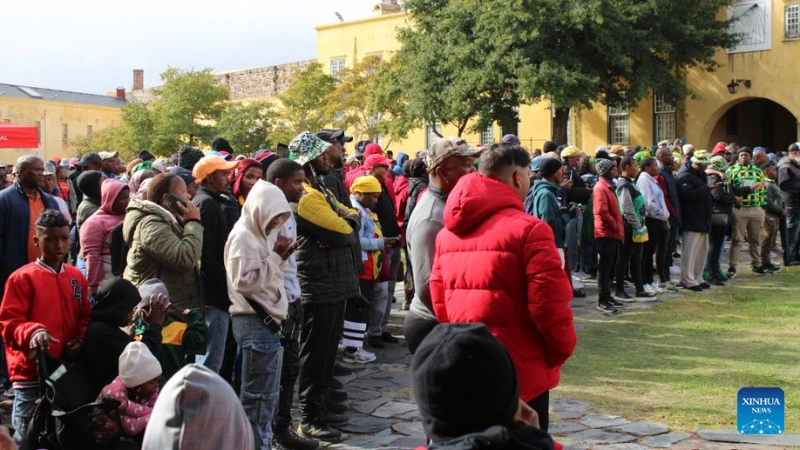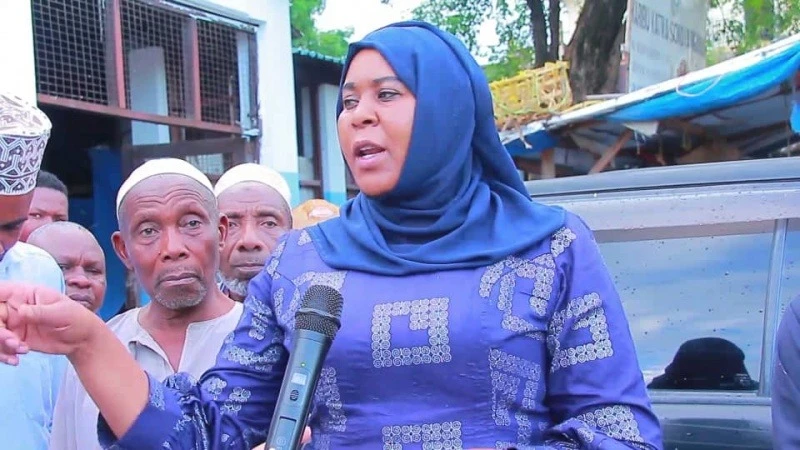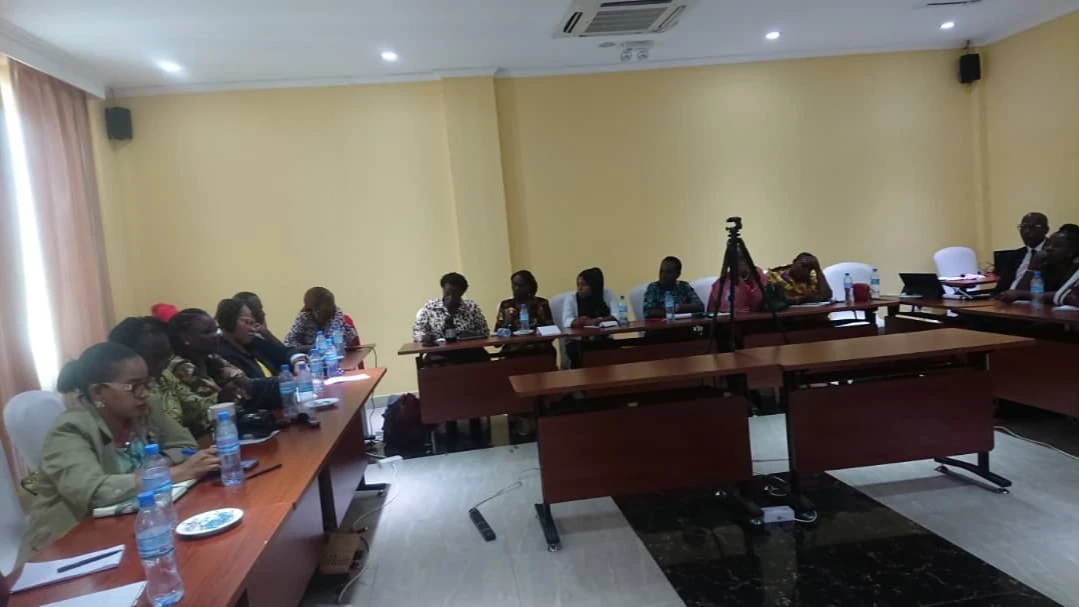Tanzania weighing new policy to mandate human rights, environmental due diligence
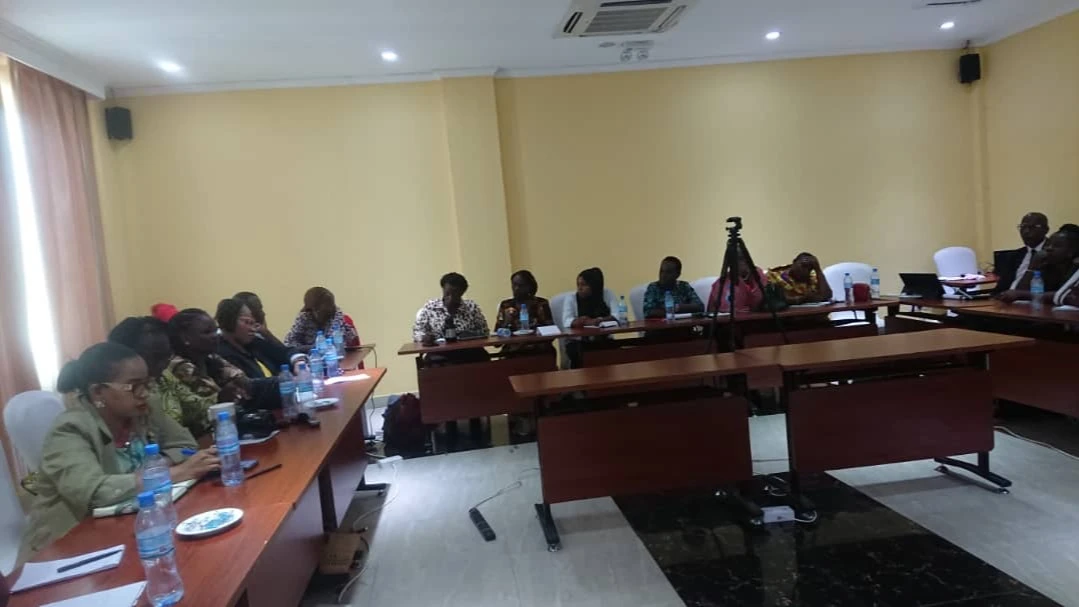
Non-Governmental Organizations (NGOs), Civil Society Organizations (CSOs), and government officials from various regions recently convened in Dar es Salaam to deliberate on the potential implementation of a Mandatory Human Rights and Environmental Due Diligence (MHREDD) policy in Tanzania.
The multi-stakeholder meeting, funded by the African Coalition for Corporate Accountability (ACCA), centered on a comprehensive understanding of the MHREDD policy's key provisions, its anticipated benefits for the nation, and the identification of existing gaps within Tanzania's current regulatory framework.
Maria Matui, the Executive Director of Women Action Towards Economic Development (WATED), highlighted the significance of the gathering, stating that it aimed to educate Tanzanian stakeholders on the advantages of such a policy. Her remarks came during the convening, which built upon insights gained from the Africa Business and Human Rights Forum held in Nairobi, Kenya, in June 2024, where WATED represented Tanzania.
Participants actively explored avenues for Tanzania to formulate its own robust policy dedicated to safeguarding human rights and the environment. A key emphasis was placed on ensuring the meaningful involvement of a diverse range of stakeholders, including NGOs, CSOs, government representatives, the private sector, mining companies, and other industries.
"We have decided to organize this meeting to help various stakeholders from Tanzania learn about the benefits of this policy after gaining insights from other stakeholders in African countries and ACCA," explained Matui, referencing the Nairobi forum.
A central theme throughout the event was the urgent need for a new policy framework to provide clear guidance to both domestic and international companies investing or already operating in Tanzania. This guidance would ensure that their projects and businesses consistently uphold human rights and protect the environment.
"If Tanzania is able to develop a new policy that respects human rights in various businesses and projects while protecting the environment, it will allow people and workers to thrive in their communities and workplaces," Matui asserted.
The envisioned policy is expected to offer explicit directives on fair treatment of workers, promote equal opportunities, and contribute to the preservation of both human well-being and marine resources within a safe and sustainable environment.
The convening brought together representatives from key institutions such as the Ministry of Constitutional and Legal Affairs, the National Environment Management Council (NEMC), HakiRasilimali, and various NGOs spanning regions including Kigoma, Mtwara, Lindi, Mafia, Kiteto, Simanjiro, Karagwe, and Ngara.
Discussions also focused on the structural elements of the proposed policy, with participants underscoring the necessity for all companies to adhere to national laws, prevent human rights violations, avoid environmental harm to the earth and local communities, and guarantee citizens' access to their rights throughout companies' value chains and operations.
Furthermore, the event facilitated valuable knowledge exchange with experts from Zimbabwe and Uganda. Participants gained insights into successful mining sector reforms aimed at regulating mineral exploration, advocacy efforts for human rights, and the development of national action plans on business and human rights, highlighting pathways for businesses to align their operations with human rights principles.
Matui clarified that the MHREDD is a European Union policy designed to manage business rights, protect human rights, safeguard the environment, and support companies in mitigating the adverse impacts of their activities on human rights.
"As Tanzania, we congratulate the EU for implementing such an excellent policy that encourages companies to respect human rights and protect the environment. We are also ready to adopt a similar policy in Tanzania," she affirmed, while also requesting the EU's collaboration in advancing the policy's implementation, particularly concerning gender issues affecting women.
Adam Anthony, the executive director of HakiRasilimali, echoed this sentiment, emphasizing that a successfully formulated policy would guide both local and foreign investors in various projects, including those already underway in sectors like mining and gas exploration. He stressed that the policy would be instrumental in preventing human rights violations and ensuring legal compliance.
Highlighting the increasing number of development projects in Tanzania, particularly in gold mining and upcoming gas exploration zones, Anthony underscored the importance of ensuring all companies, including subcontractors, adhere to national laws and respect human rights. He also emphasized the need for companies to provide employees with contracts, benefits, and health insurance.
Anthony believes the policy will empower citizens to understand and claim their rights, while assisting major industries like mining and gas extraction in avoiding practices that lead to human rights abuses, such as land acquisition without proper citizen involvement or compensation, environmental pollution, and related issues.
Grory Mlaki, Program Coordinator for Women Action on Eco-Health and Legal Rights based in the Mwanza Region, pointed out the limited awareness of human rights education, environmental conservation, and due diligence among small-scale miners in the country. She also noted the lack of education on environmental restoration in mining areas.
"As we continue to develop this policy, it is important to involve all miners in the process. They should be given a chance to share their views, express their needs, and highlight the key issues that the policy should prioritize based on their activities," Mlaki emphasized. She believes this inclusive approach will help prevent human rights violations and environmental pollution, ultimately protecting communities and marine resources.
However, Mlaki noted a significant gap: the current policy paper for advocacy on MHREDD in Tanzania does not address the small-scale mining sector. She stressed the urgency of advocating for the government to incorporate the needs and concerns of sectors like small-scale mining, fishing, and private security into the National Action Plan on Business and Human Rights to ensure effective MHREDD implementation and compliance. This includes establishing independent monitoring mechanisms, promoting gender-sensitive approaches, and ensuring access to grievance mechanisms for affected communities.
"By doing so, Tanzania can have responsible and sustainable small-scale miners who respect human rights and protect the environment," Mlaki stated.
She also highlighted the critical need for effective engagement and collaboration with multi-stakeholders in the mining value chain to ensure inclusive participatory approaches and the education of small-scale miners on the dangers of mercury and the importance of responsible chemical use and waste disposal.
Mlaki revealed that Tanzania's small-scale mining sector employs over 1.5 million people and indirectly supports nearly 9 million, contributing 40 percent of the mining sector's revenue. Despite its significance, the sector faces challenges contributing to human rights violations and environmental degradation, including informal operations, lack of registration, exploitative labor, child labor, dangerous working conditions, gender-based violence, forced displacements, environmental degradation, and deforestation.
Rose Ugulumu, the project coordinator of Business and Human Rights Tanzania (BHRT), advocated for a ground-level approach before finalizing any new policy. "Before coming up with a new policy, we should go to the mining areas, involve the stakeholders, listen to their views, and also carry out monitoring and documentation to understand everything on the ground so that we can formulate a feasible and implementable policy," she suggested, highlighting the prevalence of human rights violations and severe environmental degradation in mining areas. She also raised critical questions about compensation for harm caused by mining activities and the lack of education and formalization for small-scale miners.
Yvonne Guido, national coordinator of the Private Security Gender and Human Rights Platform (PRISEP), expressed optimism that the policy would help reduce Gender-Based Violence (GBV) for employees in private security companies. She pointed out the current absence of specific laws guiding private security companies in respecting human rights, despite their crucial role in national security. Guido also noted the widespread human rights violations and low salaries within the sector.
Pendo Kundya, the Eastern and Southern Manager of the National Environmental Management Council (NEMC), emphasized that the new policy would contribute to environmental cleanliness, as every individual has the right to a safe and clean environment. She believes it will clarify responsibilities for both individuals and companies, ensuring safe and non-harmful activities that promote sustainable development and support human rights across sectors like mining, gas, agriculture, and fishing.
The Multi-Stakeholder Convening on Human Rights and Environmental Due Diligence, supported by the African Coalition for Corporate Accountability (ACCA), brought together participants from Non-Governmental Organizations (NGOs), Civil Society Organizations (CSOs), and government officials from various regions in the Dar es Salaam Region.
Top Headlines
© 2025 IPPMEDIA.COM. ALL RIGHTS RESERVED











